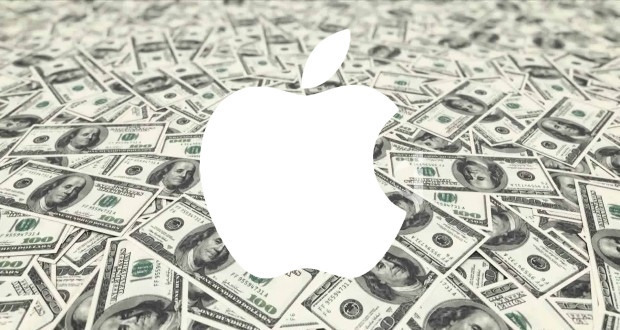The government of the United Kingdom has announced plans to claw more tax revenue from Apple and other tech giants, with a proposed "Digital Service Tax" on 2 percent of all revenues derived from UK-based users that could be implemented in April 2020.
Announced by UK chancellor Philip Hammond at the House of Commons on Monday, the Digital Service Tax is being billed as a way for big firms to pay their fair share, or as the "Budget 2018" report advises, will "ensure that the amount of tax paid in the UK is reflective of the value they derive from their UK users."
The tax would apply only to revenues generated from search engines, social media platforms, and online marketplaces, areas that companies such as Apple, Google, Amazon, and others operate within. It will also only apply to firms that generate global revenues in excess of 500 million pounds ($640 million) per annum, and would only be applied to the revenue stemming from UK customers.
The chancellor highlighted that it wasn't a sales tax against goods and services paid for by the users, but was an attempt to force firms to pay more in corporation taxes, something that they are keen to minimize. "It's only right the global giants pay their fair share," suggests Hammond, who expects the tax to generate over 400 million pounds ($512 million) per year in taxes.
The measure will enter a consultation period before being implemented, but it is claimed it will only be a temporary measure until "an appropriate long-term solution is in place" to reform the international corporate tax framework.
The UK is not the only one considering ways to force the tax issue. Earlier this month, Germany's finance minister Olaf Scholz advised there needs to be a "worldwide minimum tax level that no state may go below."
In March, the European Commission revealed plans to require large firms to pay taxes all over the E.U., rather than just the country of its regional headquarters. The move would prevent multinational firms from shopping around countries to find the best tax deal, in order to funnel all European revenues through.
Apple is considered to be a major target of the proposals, in part due to its high revenue in Europe that it funnels through its headquarters in Ireland.
A 2016 ruling by the European Commission declared Ireland had to collect billions in back taxes from Apple, after being found to have extended preferential tax treatment to the company. Apple has since paid the entire 13.1 billion euro ($15.3 billion) balance, as well as 1.2 billion euro in interest, into an escrow account controlled by the Irish government.
Both Apple and Ireland are appealing the ruling.
This is not the first time the UK government has gone after Apple for tax. In January, Apple paid approximately $184 million to Her Majesty's Revenue and Customs in additional taxes, following an extensive audit into pre-2015 tax filings.
AppleInsider will be at the fall "There's more in the making" event, where we expect new iPad Pros, and maybe even new Macs! Keep up with our coverage by downloading the AppleInsider app for iOS, and follow us on YouTube, Twitter @appleinsider and Facebook for live, late-breaking coverage. You can also check out our official Instagram account for exclusive photos.
 Malcolm Owen
Malcolm Owen







-m.jpg)






 Brian Patterson
Brian Patterson
 Charles Martin
Charles Martin



 William Gallagher
William Gallagher
 Christine McKee
Christine McKee
 Marko Zivkovic
Marko Zivkovic









42 Comments
“
Is Apple still showing that money on its balance sheet? If not, when did it take the hit on operating profits?
“
- I’ll bet one’s appealing harder than the other.
This kind of fix helps nothing, corporates should be paying tax in the country of sale if they have no overheads then the taxable income should be greater.
Although I have a substantial investment in Apple shares I applaud this movement. 2% has to be just a starting position and it needs to be widened to include all the global entities pushing their European revenues through Ireland, Luxembourg and Netherlands. Ireland and the others are effectively stealing from the countries where the revenue is generated.
The list of companies includes Apple, Facebook, Twitter, IBM, HP, Dell, and the list goes on and on.
This is a sensible approach. Apply a band-aid until international tax law can catch up.